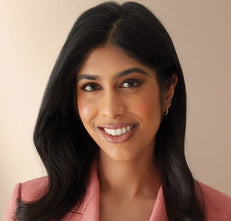Your Dermatologist Can Help With These Common Hair and Scalp Problems
It’s hard to know when it's time to visit your doctor. If you are suffering from these scalp or hair issues, your board-certified dermatologist can help — plus, find out what you can do to restore your hair health.
Scalp Acne
Also known as scalp folliculitis, this looks and feels like acne bumps on your scalp and may be painful or itchy. Scalp acne can be caused by using products that contain silicones or oils, infections, occlusion (like wearing tight-fitting hats or helmets) or shaving practices. Your dermatologist can diagnose this condition, help identify the trigger and prescribe topical or oral treatments to help.
Dandruff
Got dandruff, or is it something more? Dandruff is flaking on the hair strands and scalp. However, seborrheic dermatitis is when the scalp gets inflamed, and flaky, red patches also affect the eyebrows, face or other parts of the body. Seborrheic dermatitis is caused by a natural yeast that grows in areas that are rich in oil (sebum) glands. Washing your hair more frequently can help. If that isn’t enough, a dermatologist can recommend topical treatments and shampoos.
Bald Spots
If you notice patches of balding on your scalp, your dermatologist can help. Scattered, round patches of hair loss may be due to a condition called alopecia areata, a type of autoimmune hair loss. Balding in one area (like near the hairline or front part) could be a sign of female pattern hair loss. Your dermatologist is the expert in hair loss pattern recognition and can diagnose your type of hair loss. The good news is that most types of hair loss are treatable.
Increased Shedding
Have you noticed a sudden increase in the hair left behind in your hairbrush or shower drain? If so, this could be a sign of telogen effluvium, a type of stress-related induced hair loss that can occur after physical triggers (like high fever or childbirth) or severe emotional stress. In most people, this resolves on its own. A dermatologist can diagnose this and may offer solutions to help.
Lice
Have an itchy scalp? Head lice is most common in children, but it can happen in adults, too, although people with very curly or coarse hair may be less susceptible because lice have a hard time latching onto this hair type. Hair lice may present with itching on the scalp, particularly near the back of the neck or behind the ears. A dermatologist can diagnose lice and can recommend at-home or prescription regimens.
Need to find a dermatologist? The American Academy of Dermatology offers this search tool to make it easy to find a board-certified dermatologist near you.
From Dr. Nathan: What Your Hair Can Tell You About Your Overall Health










